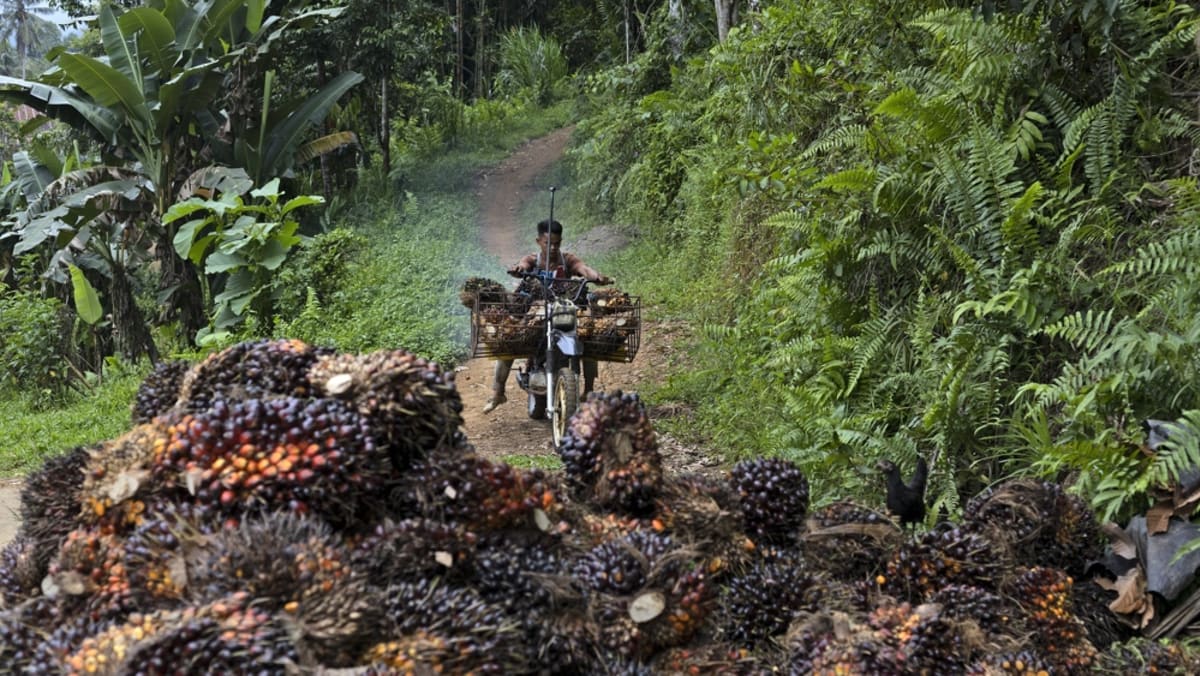JAKARTA: The European Union’s anticipated import curbs on Indonesian palm oil are a “blessing in disguise” that will help the Southeast Asian country improve its energy self-sufficiency, president-elect Prabowo Subianto said.
Indonesia will, instead, use more of the palm oil it produces for biodiesel and reduce its dependence on fuel imports, Mr Prabowo said.
The incoming Indonesian president, who will take over from Mr Joko Widodo on Oct 20, revealed on Sunday (Aug 25) what he had said to French president Emmanuel Macron when they met in Paris in late July.
“If you want to ban our palm oil from entering Europe, I say thank you very much. We will use our palm oil for the benefit of our people, achieving self-sufficiency in energy,” said Mr Prabowo as quoted by local media outlet Bisnis.
“We feel that if Europe does not want to buy our palm oil, we are grateful, it’s a blessing in disguise. He (Mr Macron) was a bit surprised,” he added.
They had discussed what he called the EU’s policy to boycott Indonesian palm oil, and Mr Macron reportedly offered assistance to mitigate the impact of the boycott on Indonesia, Mr Prabowo recounted at the congress of the National Mandate Party (PAN), which is part of his political coalition.
He was referring to the EU’s anti-deforestation regulation, which will take effect on Dec 30 and require assessments of seven commodities including palm oil. Products should be deforestation-free and traceable, among other criteria. Indonesia and Malaysia, the world’s two largest palm oil producers, have decried the policy as discriminatory.
In February, Indonesian deputy minister of trade Jerry Sambuaga told Antara news agency that the primary motivation behind the EU’s policy was the loss in trade competitiveness. He noted that the EU’s domestic rapeseed oil is considerably more expensive than Indonesian palm oil.
Indonesia has lodged an official complaint against the EU with the World Trade Organization (WTO) in a case that remains unresolved.
